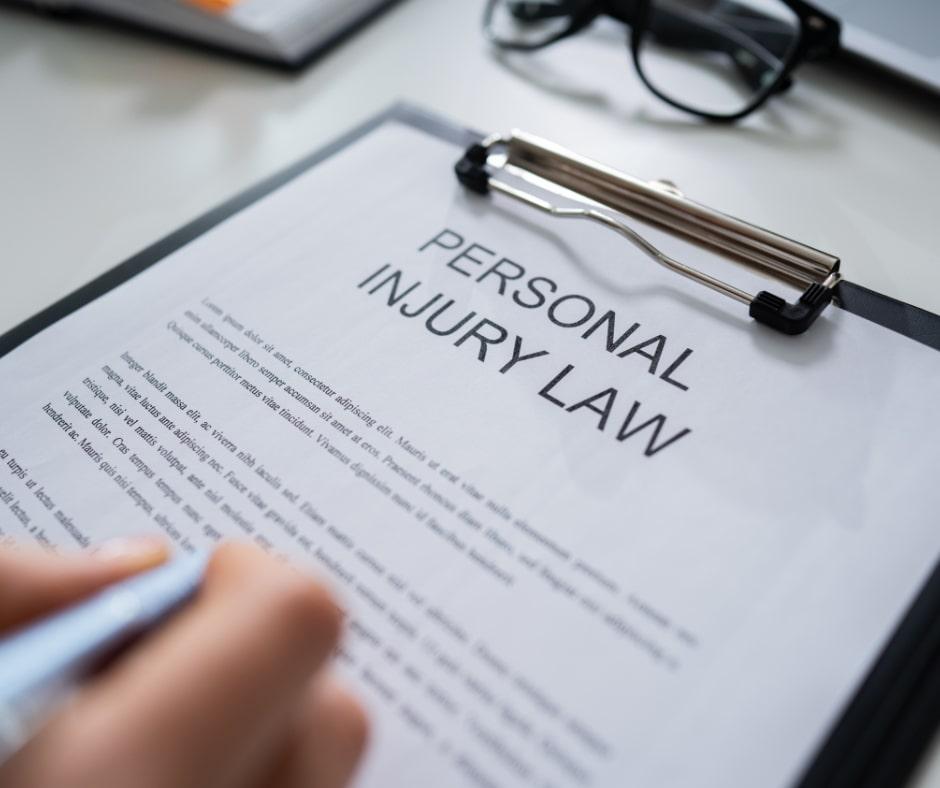Smiles Fool You.
We WIN Legal Fights!

Personal injury claims are legal disputes that arise when an individual suffers harm due to the negligence or wrongful actions of another party. These claims are rooted in tort law, which allows the injured person, known as the plaintiff, to seek compensation for the damages they have incurred, including medical expenses, lost wages, and pain and suffering. Understanding the nuances of personal injury claims is essential for anyone navigating this complex field of law.
Personal injury claims can arise from a wide array of incidents. Common types include:
1. Automobile Accidents: Negligence on the road—such as distracted driving, excessive speeding, or driving under the influence—can lead to serious car accidents that may result in significant injuries and legal claims.
2. Slips and Falls: Property owners have a duty to maintain a safe environment for visitors. If a person slips, trips, or falls due to hazardous conditions, they may pursue a claim against the property owner for neglect.
3. Medical Malpractice: When healthcare professionals fail to adhere to the appropriate standard of care, resulting in patient harm, those affected can file claims for malpractice.
4. Product Liability: Defective or unsafe products can lead to injuries, enabling consumers to hold manufacturers or retailers accountable through product liability claims.
5. Workplace Injuries: Employees injured while performing their duties may be entitled to compensation through workers’ compensation claims or personal injury lawsuits if third-party negligence is involved.
Filing a personal injury claim typically involves several key steps:
1. Consultation with a Lawyer: An experienced personal injury attorney can help assess the merits of the case, guide the injured party through the legal process, and negotiate with insurance companies.
2. Gathering Evidence: Documenting the incident, collecting medical records, and compiling witness testimonies are critical in building a strong case.
3. Filing the Claim: Claims are often filed with the at-fault party’s insurance company. If negotiations do not reach a satisfactory settlement, the plaintiff may choose to file a lawsuit in civil court.
4. Negotiation and Settlement: Many cases are settled before reaching the courtroom. Negotiation is an essential part of the process, where both parties aim to reach an amicable resolution.
5. Trial: If a settlement cannot be reached, the case may go to trial, where evidence is presented to a judge or jury, who will ultimately decide on the outcome.
Time is of the essence in personal injury claims due to statutes of limitations, which set strict deadlines for filing lawsuits. These limitations vary by jurisdiction and type of claim, making it crucial for injured parties to seek legal assistance promptly.
Personal injury claims serve as a vital mechanism for those harmed by others’ negligence to seek justice and compensation. Understanding the intricacies of the claims process and working with a qualified attorney can significantly enhance the chances of a successful outcome. As you navigate this challenging experience, remember that you are not alone—help is available to guide you toward recovery and financial restitution.
A personal injury claim is a legal request for compensation filed by an individual who has suffered harm due to the negligence or wrongful actions of another party. This type of claim typically arises from accidents, including car collisions, slips, and falls, medical malpractice, or workplace incidents. The fundamental premise of personal injury law is to make the injured party “whole” again, financially and physically, by holding the responsible party accountable for their actions.
In a personal injury claim, the injured individual, known as the plaintiff, must demonstrate that the defendant (the party being accused) acted negligently or intentionally caused harm. This often involves proving four critical elements: duty of care, breach of duty, causation, and damages. For example, in a car accident case, the plaintiff must show that the defendant had a responsibility to drive safely, failed to do so through reckless behavior and that this failure directly resulted in injuries and financial losses.
Compensation sought through personal injury claims can encompass a wide range of damages. These may include medical expenses, lost wages, pain and suffering, emotional distress, and sometimes punitive damages aimed at deterring the defendant from future misconduct. The complexity of personal injury claims can vary significantly, with many cases being resolved through settlement negotiations, while others may proceed to trial if a fair agreement cannot be reached.
Understanding the ins and outs of personal injury claims is vital for anyone facing the aftermath of an injury. Legal representation is often recommended, as attorneys specializing in personal injury law can navigate the intricacies of the legal system, advocate for their client’s rights, and strive to obtain the compensation they deserve. Ultimately, personal injury claims serve as a mechanism for justice, allowing individuals to seek redress and regain stability in their lives following an unexpected injury.
An experienced personal injury attorney in Harris County, Galveston County, Fort Bend County, Montgomery County, Brazoria County, Houston, Sugar Land, Missouri City, and Stafford, Texas at Thornton Esquire Law Group, PLLC will take over the case from the very beginning and make sure that you receive fair compensation for your injuries. A personal injury lawyer will help you recover medical expenses, lost wages, pain and suffering, and other losses due to the accident. Contact us today at www.thorntonesquirelawgroup.com for a free case evaluation consultation.